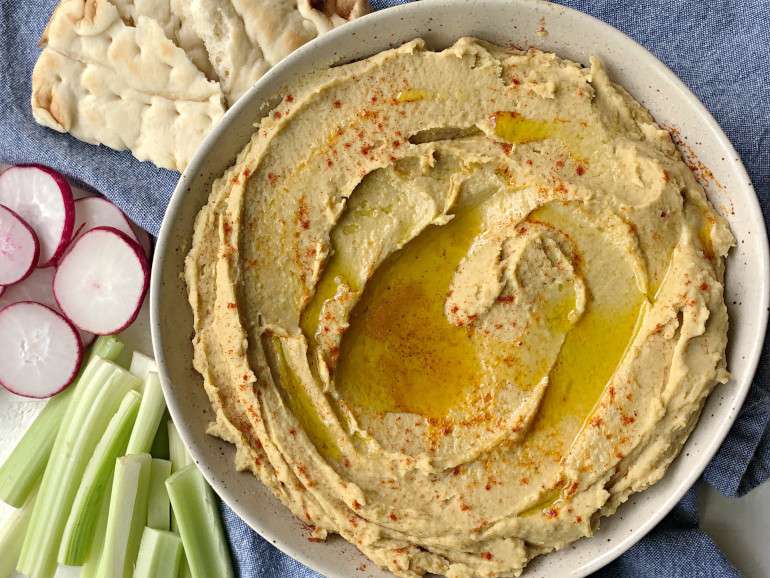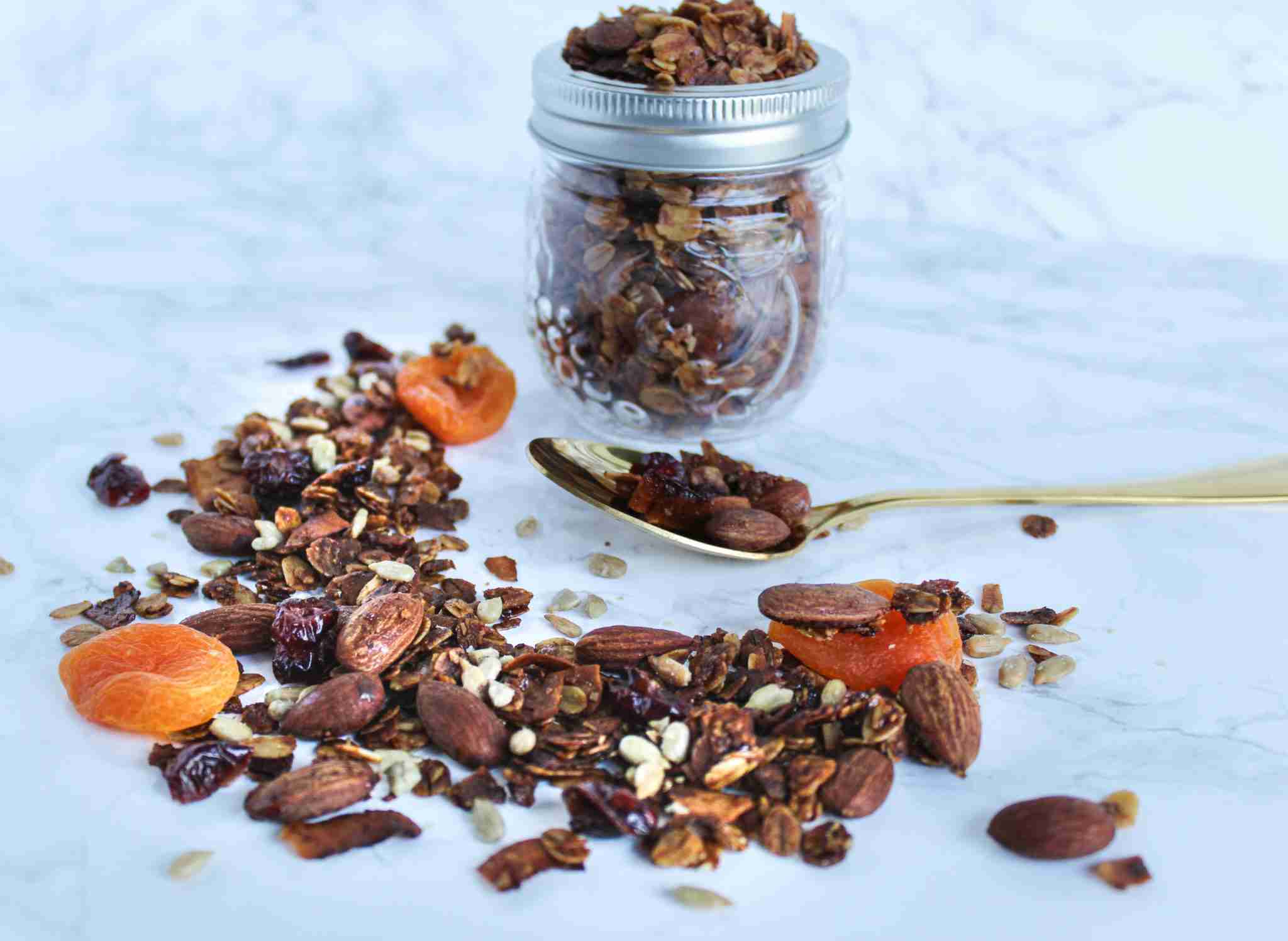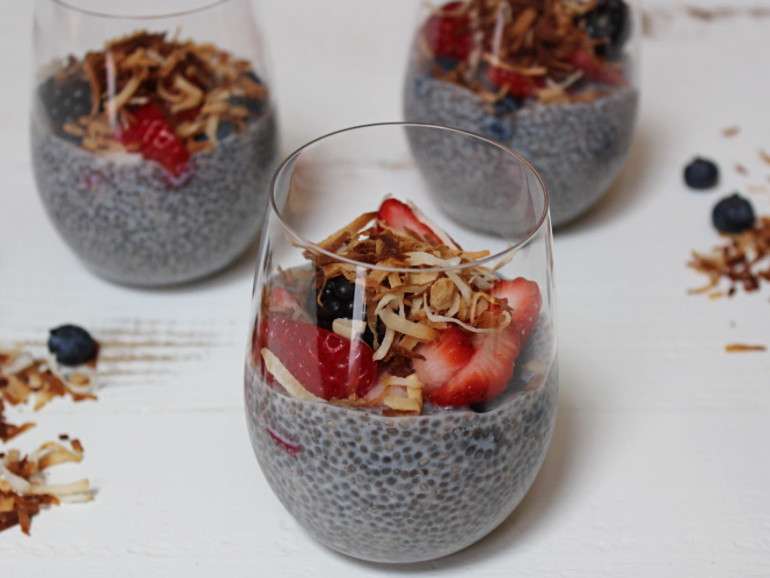Seed Cycling for Fertility: Will Seed Cycling Help Balance My Hormones?
Before we discuss if seed cycling for fertility is beneficial, let’s first talk about what seed cycling is.
What is Seed Cycling?
Seed cycling is the concept of eating certain small seeds at specific times in your menstrual cycle that theoretically help support the hormones needed pre-ovulation and post-ovulation. The goal is to eat 1 Tbsp of pumpkin seeds and 1 Tbsp of flaxseeds during the follicular phase (the phase leading up to ovulation), and 1 Tbsp of sunflower seeds and 1 Tbsp of sesame seeds during the luteal phase (the phase after ovulation). It is recommended to grind the seeds before consuming to increase absorption.
The thought of seed cycling is that these seeds contain specific micronutrients that support specific phases of fertility. Pumpkin seeds and flaxseeds support egg quality and follicular development, while sesame seeds and sunflower seeds improve the endometrial lining thus improving chance of implantation. Those who recommend seed cycling make claims like it improves insulin resistance and helps improve the balance between estrogen and progesterone.
Should I be using Seed Cycling for my Fertility Journey?
When you are trying to conceive and it is taking longer than expected, you may feel desperate to try anything and everything to help improve your fertility. However when it comes to seed cycling, the research is not there. There is no research to support seed cycling specifically for fertility. That doesn’t mean there is no need to eat small seeds. These little powerhouses are great sources of zinc, vitamin E, magnesium, anti-inflammatory fats, vitamin B6, selenium, etc. These are nutrients that are needed by our bodies and do help support hormone balance and fertility. But the need to only eat specific seeds during specific phases of your cycle is unnecessary. Not to mention, seed cycling leaves out two great small seeds, chia seeds and hemp hearts!
Does timing of eating the seeds impact my fertility?
Let’s take a slight detour from seed cycling to discuss micronutrient levels in our bodies. We offer in depth micronutrient deficiency testing through a company called Vibrant America. The blood test assesses the cellular levels as well as the serum levels of many micronutrients. The cellular status tells us if the long term stores of the micronutrients are adequate, ie how well are the nutrients being absorbed and stored? The serum status tells us if the short term levels are adequate, ie are you getting enough of these micronutrients in your diet or supplements? Check out the micronutrient testing sample report if you’re interested in learning more!
So what does all that mean for you? Yes, you could benefit from having your micronutrient levels tested because a deficiency in many nutrients could impact your fertility. But another take away here is that our body stores up nutrients for future use. By eating these nutrient rich seeds all throughout the cycle, you are allowing your body to store up the nutrients that it needs for every aspect of fertility. You do not need to switch between different seeds at the point of ovulation to see some amazing benefit. You need to incorporate these nutrients into your diet consistently, and the time of your cycle does not matter.
How do I incorporate small seeds into my meals?
Flaxseeds, sesame seeds, pumpkin seeds, sunflower seeds, chia seeds, and hemp hearts are all beneficial to your health. Try to incorporate a variety of these seeds into your day, and aim for incorporating 1-2 Tbsp of small seeds most days. You can use these seeds as toppings for yogurt or salads, add them to smoothies or overnight oats, or purchase or make granola/bars/cereals that incorporate these seeds. We’ve rounded up our recipes that incorporate these small seeds if you need more ideas!

Sesame Seeds
Hemp Hearts


Sunflower Seeds

Whether you are trying to conceive, or trying to regulate your cycles, small seeds can be beneficial to provide important micronutrients, along with protein, fat, and fiber. There is a benefit to incorporate them into your meals, but you do not need to seed cycle. Incorporate a variety of seeds all throughout your cycle.
More Fertility Blogs to Check Out
An award winning recipe developer, Dietitian Kaitlin’s mission is to empower others to reach their health goals by encouraging them to get back into the kitchen. Co-author of Nourished: 10 Ingredients to Happy, Healthy Eating and Cooking with Diabetes.







